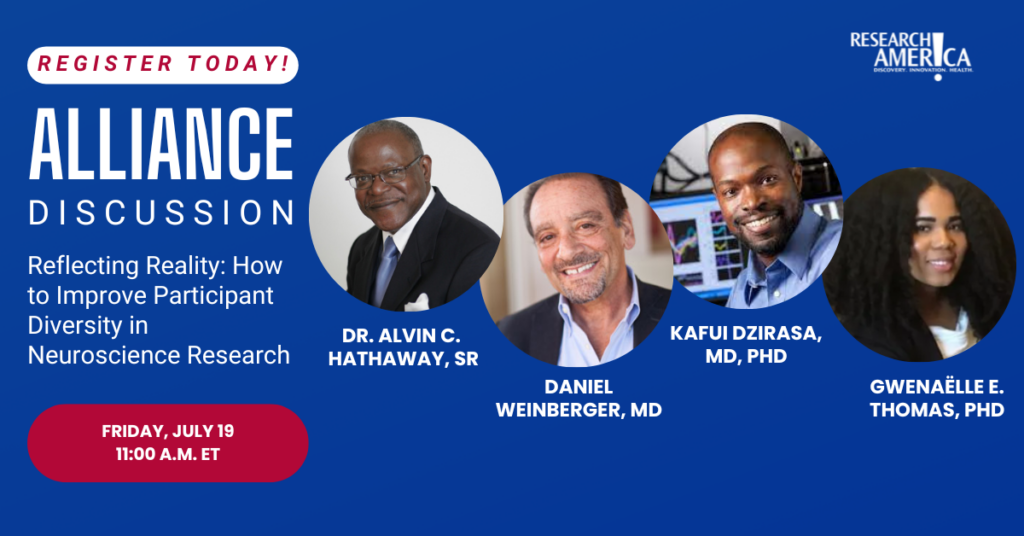Ancestry-associated genes have an important impact on mental health, yet only 5% of neuroscience research subjects are from underrepresented populations. This limits the application of research into a variety of diseases such as Alzheimer’s and Parkinson’s Disease.

On Friday July 19 at 11:00 a.m. ET, the African Ancestry Neuroscience Research Institute will join us to discuss their work in increasing the diversity of neuroscience research. The organization’s work on the role of genetic ancestry in several neurological diseases has recently been published in Nature Neuroscience. We look forward to an informative and interactive discussion.
Speakers include:
Dr. Alvin C. Hathaway, Sr., Co-founder of African Ancestry Neuroscience Research Initiative, Pastor Emeritus of Union Baptist Church, and President/CEO of Beloved Community Services Corporation
Daniel Weinberger, M,D., Director and CEO of the Lieber Institute for Brain Development and Professor of Psychiatry, Neurology, Neuroscience and Genetic Medicine at the Johns Hopkins University School of Medicine
Kafui Dzirasa, M.D., Ph.D., Professor of Psychiatry and Behavioral Sciences, Neurobiology, Biomedical Engineering, and Neurosurgery at Duke University and Investigator at the Howard Hughes Medical Institute
Gwenaëlle E. Thomas, Ph.D., Scientific Project Manager at the Lieber Institute for Brain Development (LIBD) and an Adjunct Professor of Biology at Morgan State University
We hope you will attend what is sure to be a great discussion!
